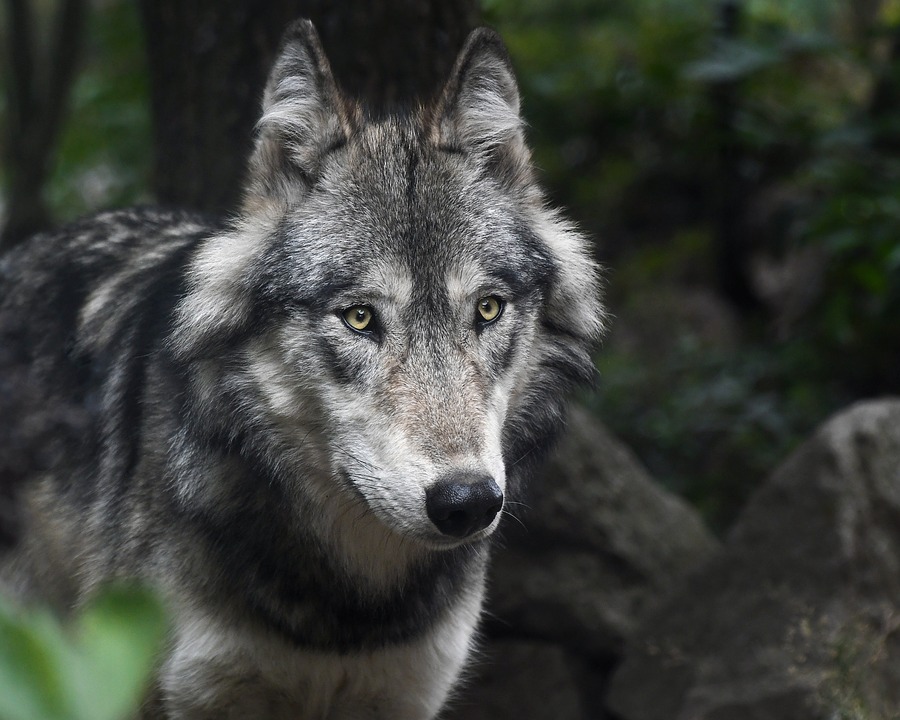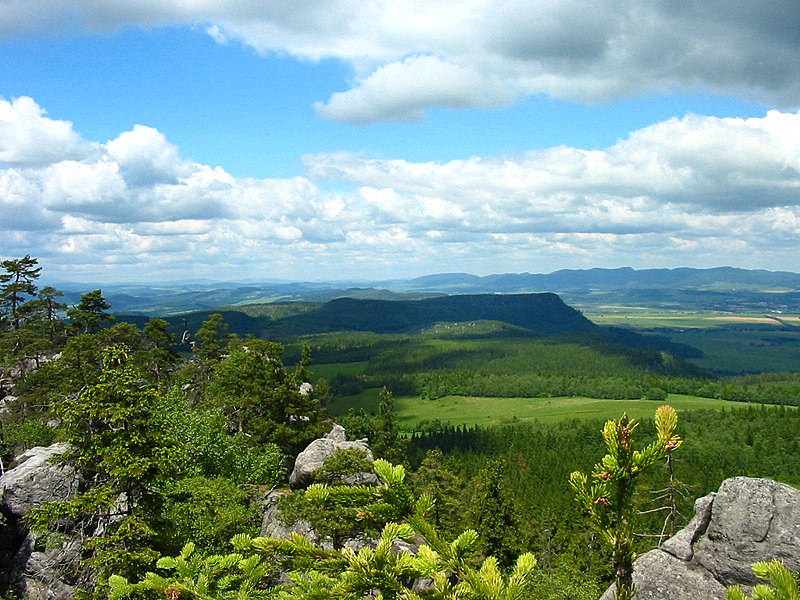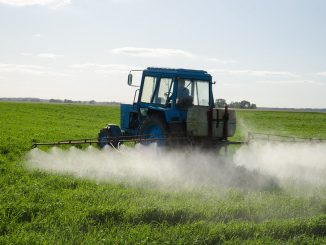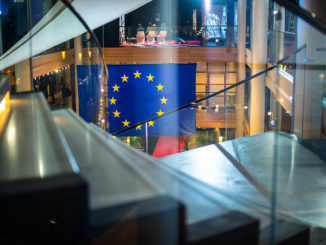
Louise Kelleher in Prague
Wolves are recolonizing the Czech Republic in leaps and bounds. Farmers in affected areas have been hit by attacks on livestock and are resentful of what they see as toothless protections and unpaid compensation from the state. Conservationists welcome the wolf as a much needed predator in the ecosystem. Millions of euros worth of damage is caused to Czech farms every year by unchecked populations of wild boar and deer that thrive in the absence of large predators. The return of the wolf is touted as the solution to keeping the wild boar population under control. Whichever side of the rewilding debate they fall on, Czech farmers have no choice but to learn to live with wolves.
Wolves have long prowled the eastern borders of the Czech Republic, where the Carpathian Mountains are home to one of Europe’s largest wolf populations. But in recent years the predators have been arriving from the north as thriving populations in Germany and Poland seek to expand into new territories. There are now 16 wolf territories around the Czech Republic as they venture ever farther inland from the mountainous border regions. In 2014 wolves began breeding again in Bohemia for the first time in two centuries in Mácha Lake Nature Reserve, a popular tourist destination only 100 km from Prague. Wolves continue to breed in the region: this camera trap footage shows an adult male and five cubs born in 2018.
The predator enjoys year-round protection in the Czech Republic as well as in neighbouring Germany and Poland. Farmers in other areas recolonized by wolves – such as over the border in Saxony – are proving that it is possible for wolves and animal husbandry to coexist. But preventative measures are a must, says the Czech Nature Conservation Agency.
Lock up your livestock
The Czech Nature Conservation Agency (AOPK) is the state agency responsible for paving the way for the wolf in the Czech Republic. A crucial part of this work is helping farmers wolf-proof their livestock. The agency recommends using specific types of electric fencing (provisional fencing is loaned out free of charge), shutting animals in sheds for the night, and keeping livestock guard dogs (at least one dog per 100 sheep). Farmers in affected areas can apply for EU grants to offset the costs of damage prevention.
Compensation is available by law in the event of a wolf attack on cattle, horses, donkeys, mules, sheep, goats, pigs or poultry. The incident must be reported within 48 hours, a vet called, and an application for compensation submitted within 10 days. To be eligible for compensation, livestock must be in sheds or protected by an electric fence at the time of the attack, or guarded by a farmhand or guard dog. Poultry must be in coops.
We don’t want to wipe out the wolves, just defend ourselves

Monika Menčíková has run an organic sheep farm near the Czech-Polish border with her husband Vladimír for the past two decades. Šonov eco farm is in the Broumovsko Nature Reserve which is home to at least one pack of wolves. Although she consulted with experts on damage prevention, her sheep have been attacked twice in a year.
“We don’t want to wipe out the wolves, just defend ourselves when they come onto our land and are going to attack our animals!” she wrote in an emotional facebook post following the second attack in October 2018, when a wolf penetrated the electric fence and left the flock for dead. She describes how the family learned of the attack when one injured sheep made her way to the farmhouse. Her udder had been torn off. The ewe bled to death before the vet arrived. The remaining animals that survived the attack had to be put down due to the severity of their injuries.
For the first attack which took place in November 2017 Menčíková is still awaiting compensation. As a result of the two attacks, she has had to replace the lost sheep with animals that are not guaranteed organic. “All our lives we’ve been building an eco farm,” she wrote on the farm’s facebook page. “Your life’s work is devalued by the inadequate positions of NGOs and state institutions lacking in experience.”
Broumovsko Nature Reserve covers only 22 sq km, but local farmers say that wolves have killed some 300 livestock in the past four years – mostly sheep as well as some goats and calves, Hospodářské Noviny newspaper reports. Only 215 animals were reported killed over the period, according to Nature Reserve staff, which acknowledges not all attacks may have been reported. Organic farmer Jan Bošina lost two newborn calves to wolves this year and another calf last year. “It took a very long time for them to pay my compensation, fifteen thousand [€587] for one calf. I had to call several times and write to different places,” he told the newspaper in November.
Fighting back
Leading the charge against the wolves is sheep farmer Tomáš Havrlant who has become de facto spokesperson for disgruntled livestock farmers in the Broumovsko area. He has lost none of his animals to wolves so far because he pens in his flock for the night behind a two-metre-high fence, he told Hospodářské Noviny newspaper, although he has had to frighten one off. Havrlant is leading a class action suit against the Ministry of the Environment to give farmers the right to shoot wolves. The group lost the case but is appealing it in the Supreme Court.
Commenting on the trigger happy tendencies of some farmers, Jiří Beneš of Friends of the Earth points out that the wolf’s protected status can be waived in certain cases under an exemption in Section 59 of the Nature Conservation Act. Where an individual wolf repeatedly defies the prescribed security measures to attack livestock, it would be legally permissible to dispose of the wolf.
Beneš works closely with farmers in Broumovsko and other parts of the Czech Republic to help them protect their livestock against potential attacks. In a recent opinion piece for environmental news site ecolist.cz Beneš notes that some farmers welcome the wolves. Helping them warm to their new neighbours is the offsetting of damage caused by other pests – a spin-off of having large predators in the vicinity. Farmers who adhere to traditional grazing methods – with herdsmen or guard dogs watching their livestock around the clock – are the least anxious about wolves. Beneš says many farmers see the return of the wolf as part of a natural process. In his experience the majority of farmers take a pragmatic approach: they see wolves as a threat to their livelihoods and get on with investing in wolf-proofing their animals.
The Association of Organic Farmers (PRO-BIO) on its facebook page described the two attacks on Monika Menčíková’s eco farm as an example of the “fatal failure” of the state. The presence of wolves is in “conflict” with the grazing of livestock, a “foundational pillar of eco farming”, claims the Association of Organic Farmers on its website. It bemoans the Ministry of the Environment’s damage prevention measures as “unrealistic” and “ineffective” in many cases. The Ministry of Agriculture is not taking the issue seriously and the Ministry of Finance is not paying out the full amounts of compensation due, according to Association of Organic Farmers.
In 2017 just under €40,000 was awarded in compensation for wolf attacks for the whole of the Czech Republic, stated the Ministry of the Environment in response to a query in April.
State actors met with farmers’ groups in November to discuss teething issues in wolf damage prevention (minutes of the meeting available in Czech here). Representatives from the Ministry of the Environment, Ministry of Agriculture and Czech Nature Conservation Agency (AOPK) sat down with the Association of Organic Farmers (PRO-BIO) and other farmers’ groups. Farmers called for an increase in preventative payouts, citing the risk of farming being abandoned due to insufficient state support. Their concluding recommendations were to renegotiate the Wolf Welfare Programme currently being drafted by the Czech Nature Conservation Agency, and to continue discussions with the Ministry of Agriculture on the new CAP, especially the question of maintaining grazing in the areas affected.
Myth-busting
Another organization working to help farmers learn to live with wolves is OWAD, a cross-border initiative that is leveraging experiences from neighbouring Germany to ensure the sustainable return of the wolf to the northern borderlands of the Czech Republic. OWAD organizes information seminars at local level to dispel popular myths and allay the fears of farmers and communities. The project works proactively with farmers, using on-the-ground feedback to continuously evaluate the effectiveness of measures to protect livestock. It is also working to systematize the complex process of compensating farmers who have suffered attacks on their livestock. A monitoring programme aims to reassure farmers with “hard data” on the movements of wolves in their local area.
Damage prevention is working, maintains Miroslav Kutal, head of the Carnivores programme at Friends of the Earth which is monitoring the situation on the ground. As the wolf population grows in the Czech Republic, fewer attacks are being reported. “[In 2016] the number of animals killed dropped, despite the fact that the wolf population here almost doubled,” stated Kutal in a recent interview. Ladislav Pořízek, Director of Mácha Lake Nature Reserve, has observed the habits of the local pack over the past four years and found that the wolves subsist overwhelmingly on a diet of wild deer. “As regards attacks on livestock, this year we recorded only one attack on one ewe and one lamb,” he told Czech Television in December.
A lot is wrapped up in the story of the return of the wolf: fear; myth; real life experiences of livestock loss; timely farmer supports; and wider biodiversity and (re)wilding considerations including the management of deer and boar. In this complex terrain, farmers are learning how to live with the return of the wolf.






